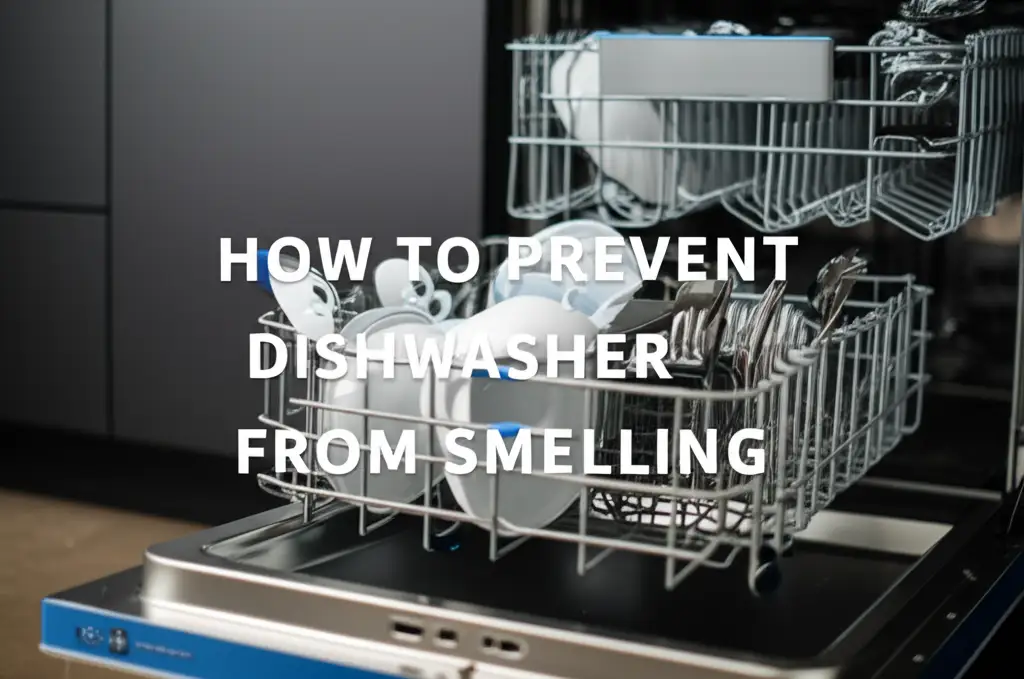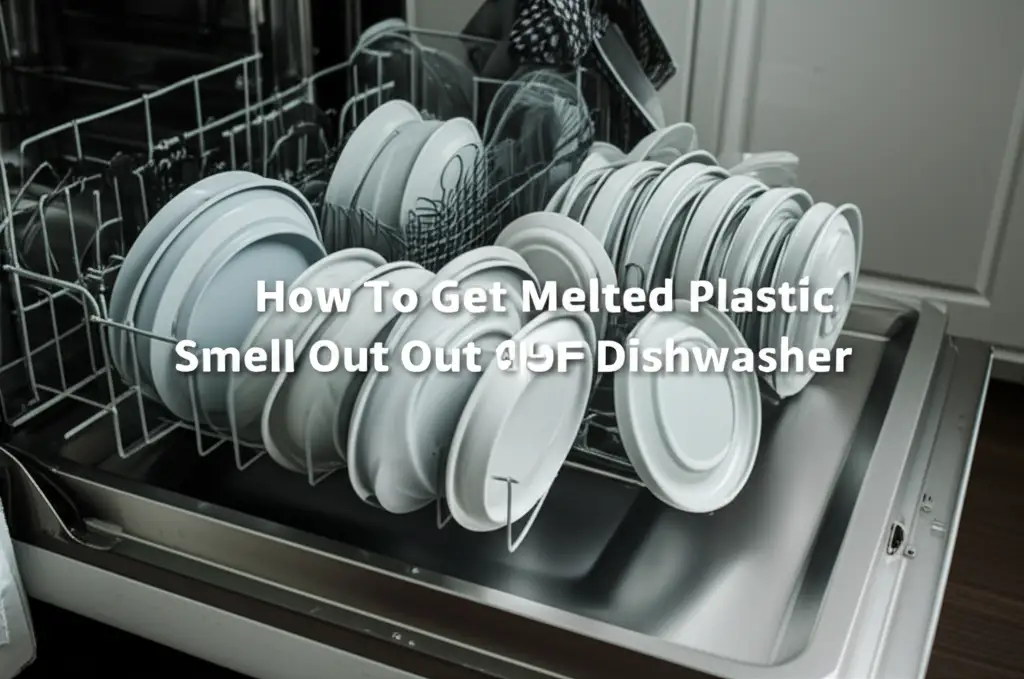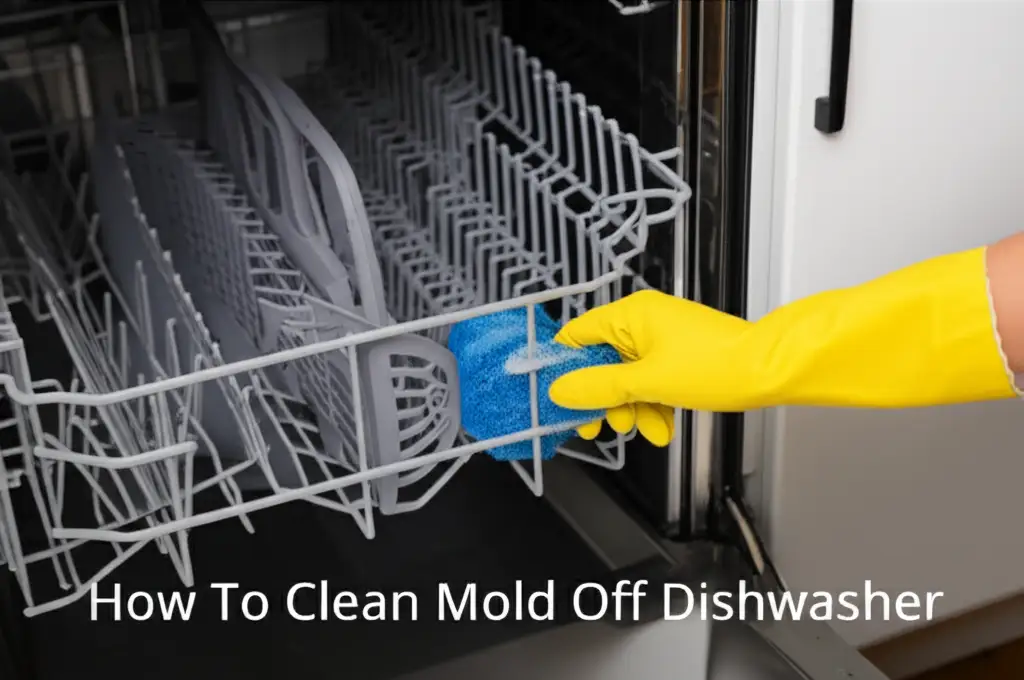· Liora Benning · Home Maintenance · 20 min read
How To Prevent Dishwasher From Smelling

Keeping Your Kitchen Fresh: How To Prevent Dishwasher Odors
Is a strange smell wafting from your dishwasher? Many homeowners experience this unpleasant issue. A smelly dishwasher can make your entire kitchen feel less clean. The good news is that preventing these odors is often straightforward.
I understand how frustrating a persistent odor can be. It often signals that your appliance needs attention. This article provides clear steps to help you prevent dishwasher from smelling. We will cover routine cleaning, proper usage, and specific solutions for common odor sources. You will learn easy-to-follow strategies to keep your dishwasher, and your kitchen, smelling fresh and clean.
Takeaway
- Regularly clean the dishwasher filter, spray arms, and door seals.
- Run monthly self-cleaning cycles with vinegar or baking soda.
- Scrape food scraps off dishes before loading.
- Ensure proper drainage and inspect the air gap.
- Use the correct amount of detergent and rinse aid.
Clear Answer to Main Query
To prevent your dishwasher from smelling, regularly clean its filter, spray arms, and door gasket. Scrape food off dishes before loading. Run monthly cleaning cycles with vinegar or baking soda, and ensure the drain system functions correctly to remove stagnant water and food particles.
Understanding Common Causes of Dishwasher Odors
A smelly dishwasher is usually a sign of lingering debris or moisture. Food particles are often the main culprits. They collect in various parts of the appliance. Over time, these particles rot and produce a foul odor. Grease and grime also build up, contributing to the smell.
Mold and mildew thrive in damp environments. Your dishwasher provides a perfect breeding ground for them. This growth commonly appears around the door seal or hidden inside crevices. If you smell a musty odor, mold is likely the cause. Drain issues can also lead to bad smells. Water that does not drain completely becomes stagnant. This stagnant water harbors bacteria and food residue, leading to unpleasant smells. Understanding these sources helps target your cleaning efforts effectively.
Food Particle Accumulation
Food scraps are a primary source of dishwasher odors. Bits of food wash off plates during cycles. These small pieces can get trapped in the filter. They also stick to the spray arms or even the walls of the tub. Over time, these trapped particles decompose. This decomposition process releases strong, unpleasant odors. Regular removal of these food scraps is vital.
Always scrape large food pieces off dishes before loading them. This simple step reduces the amount of debris entering your dishwasher. Even small crumbs can add up. Ensure you rinse heavily soiled dishes if necessary. This helps prevent buildup and keeps the machine cleaner between cycles.
Mold and Mildew Growth
Mold and mildew love dark, damp places. Your dishwasher provides ideal conditions for their growth. They commonly appear on the door gasket or seal. This area stays wet and often traps grime. The smell associated with mold is usually musty or earthy. It can spread throughout your kitchen.
Check the rubber seal around the dishwasher door regularly. Wipe it down with a damp cloth and a mild cleaner. You might also find mold inside the tub, especially in areas with poor circulation. Keeping the dishwasher well-ventilated helps. Leave the door slightly ajar after a cycle. This allows the interior to dry completely. Preventing moisture buildup prevents mold growth. For specific advice on combating this, you can read our guide on how to clean mold off dishwasher.
Drainage and Stagnant Water Issues
Improper drainage is a significant source of bad smells. If water does not completely drain from your dishwasher, it becomes stagnant. Stagnant water quickly grows bacteria. These bacteria produce foul odors. Food particles often settle in this standing water. This makes the smell even worse.
Check your dishwasher’s drain hose for kinks or blockages. Ensure the air gap, if your dishwasher has one, is clear. The air gap prevents dirty water from flowing back into the dishwasher. Sometimes, the problem lies with your kitchen sink’s drain. A clogged sink drain can affect dishwasher drainage. Regular checks and maintenance of your drain system are crucial. Learn more about resolving these issues in our article on how to get the dishwasher to drain.
Essential Routine Maintenance Steps
Routine maintenance is your best defense against a smelly dishwasher. It involves simple tasks you can do frequently. These steps stop problems before they start. Regular cleaning prevents the buildup of food, grease, and grime. This proactive approach keeps your appliance fresh.
These maintenance tasks do not take much time. They save you from bigger cleaning headaches later. They also extend the life of your dishwasher. A well-maintained dishwasher performs better. It cleans dishes more effectively. Make these steps part of your regular cleaning schedule. Your nose, and your dishes, will thank you.
Cleaning the Dishwasher Filter Regularly
The dishwasher filter is a critical component. It traps food particles and debris. If you do not clean it, these particles accumulate. They begin to decompose and create a terrible smell. A dirty filter also reduces your dishwasher’s cleaning efficiency. Dishes might come out with food bits still on them.
Most dishwashers have a removable filter. Consult your appliance manual to locate and remove it. Some filters twist out, while others lift straight up. Once removed, rinse the filter under running water. Use a brush to scrub away stubborn food and grease. A little dish soap can help. For detailed instructions, refer to our article on how often should you clean your dishwasher filter. I recommend cleaning the filter at least once a week, or more often if you use your dishwasher frequently or wash very dirty dishes.
Wiping Down Door Seals and Gaskets
The rubber seals around your dishwasher door are often overlooked. They trap food particles, grease, and moisture. This creates a perfect environment for mold and mildew. A dark, slimy residue indicates buildup. This buildup leads to strong, unpleasant odors.
Regularly wipe down these seals. Use a damp cloth soaked in warm, soapy water. Pull back the folds of the gasket to clean hidden areas. You might be surprised by what you find lurking there. For tough stains or mold, a diluted bleach solution can be effective. Always rinse the area thoroughly after using bleach. This ensures no residue transfers to your dishes. I make sure to do this every few days.
Inspecting and Cleaning Spray Arms
Dishwasher spray arms distribute water during a cycle. They have small holes that can become clogged. Food particles and mineral deposits block these holes. When holes are blocked, water does not spray effectively. This leaves dishes dirty and contributes to lingering odors.
Remove the spray arms and check the tiny holes. Use a toothpick or a small wire to clear any blockages. You can also rinse them under running water. Some spray arms simply lift off, while others may require unscrewing. Make sure they spin freely after reattaching them. Clean spray arms mean better water circulation. Better water circulation means cleaner dishes and fewer odors.
Deep Cleaning Your Dishwasher
Routine maintenance helps, but deep cleaning is essential. Over time, mineral deposits, grease, and soap scum build up. These cannot always be removed by simple wiping. A deep clean tackles these hidden culprits. It refreshes your entire machine.
Deep cleaning involves using specific cleaning agents. These agents break down tough grime. They also sanitize the interior. Performing a deep clean monthly or quarterly keeps your dishwasher in top shape. It ensures it remains odor-free. This process is simple yet highly effective.
Running a Vinegar Cleaning Cycle
Vinegar is a natural and powerful cleaner. It is acidic, which helps break down mineral deposits and soap scum. It also neutralizes odors and has antibacterial properties. Running a vinegar cycle is a simple and effective deep cleaning method. It leaves your dishwasher sparkling and fresh.
First, empty your dishwasher completely. Place a cup of white vinegar in a dishwasher-safe bowl. Put the bowl on the top rack of your empty dishwasher. Run a hot water cycle. The steam will mix with the vinegar. This combination cleans and deodorizes the interior. You can also pour the vinegar directly into the detergent dispenser. For more specific instructions on where to place it, see our guide on where to put vinegar in dishwasher to clean. I find this method works wonders for persistent smells.
Using Baking Soda to Absorb Odors
Baking soda is another excellent natural cleaning agent. It is a powerful deodorizer. It absorbs unpleasant smells rather than just masking them. It also provides a gentle abrasive action. This helps scrub away grime during a wash cycle. Using baking soda alongside or after vinegar can enhance the cleaning effect.
Empty your dishwasher. Sprinkle about one cup of baking soda across the bottom of the tub. Let it sit overnight if the smell is very strong. Then, run a short, hot wash cycle. The baking soda will dissolve and help clean the interior. It will also absorb any lingering odors. You can also combine baking soda with a vinegar wash. Run the vinegar cycle first, then follow up with the baking soda cycle. This combination is very effective for tackling tough odors.
Specialized Dishwasher Cleaners
Sometimes, natural remedies are not enough for very stubborn buildup. Commercial dishwasher cleaners offer a more intensive solution. These cleaners are formulated to tackle tough grease, lime scale, and mineral deposits. They often come in tablet or liquid form. Using them provides a comprehensive clean.
Follow the product instructions carefully. Most require you to place a tablet or pour liquid into an empty dishwasher. Then, run a hot cycle. These cleaners reach areas that you cannot easily scrub by hand. They can dissolve years of buildup. While they are powerful, I recommend using them sparingly, perhaps every few months. Combine them with your regular vinegar and baking soda cleanings for best results. Some strong cleaners can use oxygen bleach, similar to how can i use oxiclean in my dishwasher suggests for other cleaning tasks.
Best Practices for Daily Dishwasher Use
How you use your dishwasher daily significantly impacts its freshness. Small habits can prevent odors from developing. These practices ensure efficient cleaning. They also reduce strain on your appliance. Proper loading and detergent use are key.
Adopting these daily habits is easy. They require minimal effort but yield great results. You will notice fewer lingering smells. Your dishes will come out cleaner too. Make these best practices a regular part of your kitchen routine. They are simple steps to a continuously fresh dishwasher.
Pre-Rinsing or Scrapping Dishes Effectively
Many people debate whether to pre-rinse dishes. I believe scraping off large food particles is enough. Dishwashers are designed to handle some residue. However, excessive food scraps are a primary cause of odors and clogs. Large pieces can block the filter or spray arms.
Always scrape plates into the trash before loading. Remove bones, fruit peels, and sticky sauces. If food is heavily caked on, a quick rinse might be helpful. This ensures the filter does not get overloaded. It also prevents food from rotting inside the machine. A little effort here saves a lot of trouble later.
Proper Loading Techniques
Loading your dishwasher correctly is more important than you might think. Improper loading can lead to poor water circulation. This leaves dishes dirty and allows food particles to linger. It also affects the drying process, contributing to moisture and smells.
- Do not overcrowd. Give water and detergent room to circulate.
- Place dirty side down. Ensure spray arms can reach all surfaces.
- Separate items. Avoid nesting bowls or overlapping plates.
- Utensils. Point forks and spoons up, knives down for safety.
- Plastics on top rack. They can melt or warp on the bottom.
Proper loading ensures every item gets clean. It also helps prevent food residue from settling in the bottom. This reduces the chances of odor-causing buildup.
Using the Right Amount of Detergent and Rinse Aid
The right amount of detergent is crucial for clean, odor-free dishes. Too little detergent means dishes are not cleaned thoroughly. This leaves food residue behind. Too much detergent creates excessive suds. These suds can leave a film on dishes and inside the dishwasher. They also make it harder for the machine to rinse properly.
Check your detergent’s instructions for dosage. Water hardness also plays a role. Hard water might require slightly more detergent. Rinse aid helps water sheet off dishes. This promotes better drying. It reduces water spots and helps prevent moisture from lingering. Lingering moisture can lead to mold and musty smells. Always keep your rinse aid dispenser filled. For more information on detergent use, read our guide on how much dishwasher powder to use.
Addressing Specific Odor Sources and Issues
Sometimes, general cleaning is not enough. Certain persistent smells indicate specific underlying problems. These problems might require a targeted approach. Identifying the exact source of the smell helps you fix it effectively. From hidden blockages to faulty parts, knowing what to look for is key.
This section covers common specific issues. It provides solutions for each. By addressing these directly, you can eliminate even the most stubborn odors. This ensures your dishwasher stays fresh for longer. Do not ignore unusual smells. They are often signals that something needs attention.
Checking and Cleaning the Dishwasher Drain and Air Gap
The dishwasher drain system removes dirty water. If it is blocked, water can back up or sit stagnant. This leads to foul smells. The drain hose connects the dishwasher to the sink drain or garbage disposal. The air gap, if present, prevents backflow. Both need regular checks.
- Drain Hose: Look for kinks or blockages in the hose. It can become clogged with food debris and grease. You may need to disconnect and clean it.
- Air Gap: This small cylindrical device is usually on your countertop near the faucet. Remove its cap and check for obstructions. Use a pipe cleaner or a small brush to clear any debris.
- Garbage Disposal: If your dishwasher drains into a garbage disposal, run the disposal before starting a dishwasher cycle. Make sure it is clear. A clogged disposal can cause dishwasher drain issues.
Ensuring these components are clear prevents stagnant water. Stagnant water is a major source of odors. Sometimes, it is not just about cleaning the dishwasher itself, but its connections. Some GE dishwashers have specific drain features which can contribute to their unique smells, so investigating why does my ge dishwasher smell might offer additional specific insights.
Cleaning the Dishwasher Vent
Some dishwashers have a vent system. This system helps dry dishes and release moisture. If the vent becomes clogged, moisture can get trapped inside the machine. Trapped moisture leads to mold growth and musty smells. A clogged vent also makes your dishes less dry.
The vent location varies by model. It is often near the detergent dispenser or on the side of the door. Check your appliance manual for its exact location. Use a small brush or cotton swab to clean the vent opening. Remove any lint, dust, or food particles. Ensuring the vent is clear helps with proper airflow. Proper airflow promotes drying and reduces the chances of odor-causing moisture buildup. Regular cleaning of the vent contributes to overall freshness. For more guidance on this, you can check out our detailed article on how to clean dishwasher vent.
Dealing with Mineral Buildup and Hard Water
Hard water contains high levels of minerals like calcium and magnesium. These minerals leave deposits on surfaces. Inside your dishwasher, these deposits can build up. They appear as a white, chalky film. This buildup traps food particles and soap scum. It also reduces cleaning efficiency and contributes to odors.
Regular use of vinegar helps combat mineral buildup. The acidity of vinegar dissolves these deposits. You can also use citric acid powder. Add a few tablespoons to the detergent dispenser and run an empty hot cycle. Dishwasher detergents specifically formulated for hard water can also help. Consider installing a water softener if your home has very hard water. This is a long-term solution. It protects all your appliances from mineral damage.
Advanced Strategies for Long-Term Odor Prevention
Beyond regular cleaning, there are advanced strategies. These strategies aim for long-term odor prevention. They involve proactive measures and smart usage habits. Thinking about your dishwasher’s environment helps too. A holistic approach keeps your machine consistently fresh.
These strategies tackle the root causes of smells. They go beyond simple surface cleaning. Implementing them ensures fewer recurring odor problems. They also contribute to the overall health and longevity of your appliance. Invest a little more thought now for a perpetually fresh kitchen later.
Maintaining Good Kitchen Ventilation
Your kitchen’s ventilation affects your dishwasher. A poorly ventilated kitchen can trap moisture. This moisture can linger around your dishwasher. It creates a damp environment conducive to mold and mildew. Proper airflow is essential for preventing these issues.
Use your range hood fan when cooking. This pulls steam and moisture out of the air. Open windows periodically to air out the kitchen. If your dishwasher has a heated dry option, use it. This helps dry the interior completely. Leaving the dishwasher door ajar after a cycle also helps. It allows residual moisture to evaporate. Good ventilation prevents dampness from contributing to dishwasher odors.
Choosing the Right Detergent and Rinse Aid
The type and quality of your detergent matter. Cheap or ineffective detergents may not clean dishes properly. They can leave residue behind. This residue contributes to smells. Look for high-quality detergents with enzymes. Enzymes help break down food particles.
Rinse aid is equally important. It helps water sheet off dishes and the dishwasher interior. This promotes faster drying. Without rinse aid, water spots can form. More importantly, moisture can linger. Lingering moisture encourages mold and bacterial growth. Always use a good quality rinse aid. It is a small investment for a big difference in freshness. My preference is for gel pods that combine both detergent and rinse aid.
Regular Professional Inspection
While DIY cleaning is effective, professional inspections offer peace of mind. A technician can spot issues you might miss. They can identify worn-out parts or hidden clogs. They have specialized tools to clean deep within the machine. This can prevent major problems down the line.
Consider a professional check-up every few years. They can inspect components like the pump, motor, and internal hoses. They can clear blockages you cannot reach. This ensures all parts of your dishwasher function optimally. A well-functioning dishwasher is less likely to develop persistent odors. It also extends the life of your appliance. Prevention is always better than cure, especially with home appliances.
Troubleshooting Lingering Smells
Sometimes, despite your best efforts, a faint smell remains. Or perhaps a new, unusual odor appears. This section helps you troubleshoot those persistent or unusual smells. It guides you to look beyond the usual suspects. Pinpointing the exact cause is key to solving the problem.
These issues might require a bit more investigation. They could indicate a deeper problem. Do not despair if the smell persists. With careful observation, you can often identify the hidden culprit. Addressing these specific issues ensures a truly odor-free dishwasher.
Identifying Smells: Rotten Egg vs. Moldy vs. Chemical
Different smells indicate different problems. Learning to identify them helps you target the cause.
- Rotten Egg Smell (Sulfur): This often indicates a problem with the drain. Food particles trapped in the drain line decompose. They produce hydrogen sulfide gas, which smells like rotten eggs. It can also point to issues with your garbage disposal or even the main sewer line. Check your drain hose and air gap first. Run the garbage disposal. If the smell persists, it might be time to check your main plumbing.
- Moldy/Musty Smell: This is almost always caused by mold or mildew. It thrives in damp, dark environments. Check the door gasket, corners of the tub, and filter area. Ensure your dishwasher is drying completely after cycles. Increase ventilation by leaving the door ajar.
- Chemical/Plastic Smell: A new chemical smell might be residual from a recent cleaning product. If it persists or is very strong, it could indicate overheating components. Unplug the dishwasher and call a technician. A plastic smell could mean something plastic fell onto the heating element. Always check the bottom of the tub for melted items.
Understanding the smell helps you find the right solution faster.
When to Call a Professional
Most dishwasher odor issues are fixable with DIY methods. However, some situations warrant professional help. Knowing when to call a technician saves you time and prevents further damage.
- Persistent Rotten Egg Smell: If cleaning the drain and running disposal does not work, the issue might be deeper in your plumbing. A plumber can diagnose and fix it.
- Unusual Noises or Leaks: These indicate mechanical problems. A technician can inspect and repair components like the pump, motor, or seals. How to repair a leaking dishwasher is a separate complex issue.
- Strong Chemical/Burning Smell: This could mean an electrical issue or overheating. Unplug the unit immediately and do not use it.
- Recurring Mold Issues: If mold keeps returning despite regular cleaning, there might be a ventilation issue or a hidden leak.
A professional can accurately diagnose complex problems. They ensure your dishwasher functions safely and efficiently. Do not hesitate to call them for concerns beyond routine maintenance.
FAQs About Dishwasher Odors
Why does my dishwasher smell like rotten eggs?
A rotten egg smell usually points to food particles decomposing in your drain system. This can be in the dishwasher’s drain hose, filter, or even your kitchen sink’s garbage disposal. Running the disposal before a dishwasher cycle and cleaning the filter helps. It indicates a sulfur-based gas.
How often should I clean my dishwasher to prevent smells?
Clean your dishwasher filter weekly and wipe down door seals. Perform a deep clean with vinegar or baking soda monthly. Consider a specialized cleaner every few months for thorough maintenance. This routine prevents buildup and keeps odors away.
Can I use bleach to clean my dishwasher?
You can use a diluted bleach solution (1/2 cup bleach to 1 gallon water) to wipe down the interior or door seals to combat mold. Do not mix bleach with vinegar or other cleaners, as this creates dangerous fumes. Never run a bleach cycle through your dishwasher, as it can damage internal components and rubber seals.
Is it normal for a new dishwasher to smell?
A new dishwasher might have a slight plastic or chemical smell initially. This usually dissipates after a few uses. Run a few empty cycles with detergent and then with vinegar to help clear it out. If the smell persists, contact the manufacturer.
Does leaving the dishwasher door open help with smells?
Yes, leaving the dishwasher door slightly ajar after a cycle is highly recommended. This allows moisture to escape and the interior to air dry completely. It prevents mold and mildew growth, which are common causes of musty odors.
Why do my dishes still smell after washing?
If dishes smell after a wash, the dishwasher likely isn’t cleaning effectively. This could be due to an overloaded filter, clogged spray arms, insufficient detergent, or a faulty drain. Check these components and run a deep cleaning cycle.
Conclusion
A fresh-smelling kitchen starts with a fresh-smelling dishwasher. Preventing dishwasher odors involves simple, consistent effort. By regularly cleaning the filter, spray arms, and door seals, you stop food particles and grime from accumulating. Running monthly deep cleaning cycles with vinegar or baking soda tackles hidden buildup. Proper loading, using the right detergent, and ensuring good drainage also play vital roles.
I have found that proactive maintenance makes a huge difference. You avoid that unpleasant surprise every time you open the dishwasher door. Implement these tips into your routine. You will keep your appliance running efficiently and your kitchen smelling clean. Say goodbye to unwanted odors and enjoy a fresher home environment. Start your dishwasher maintenance today!





